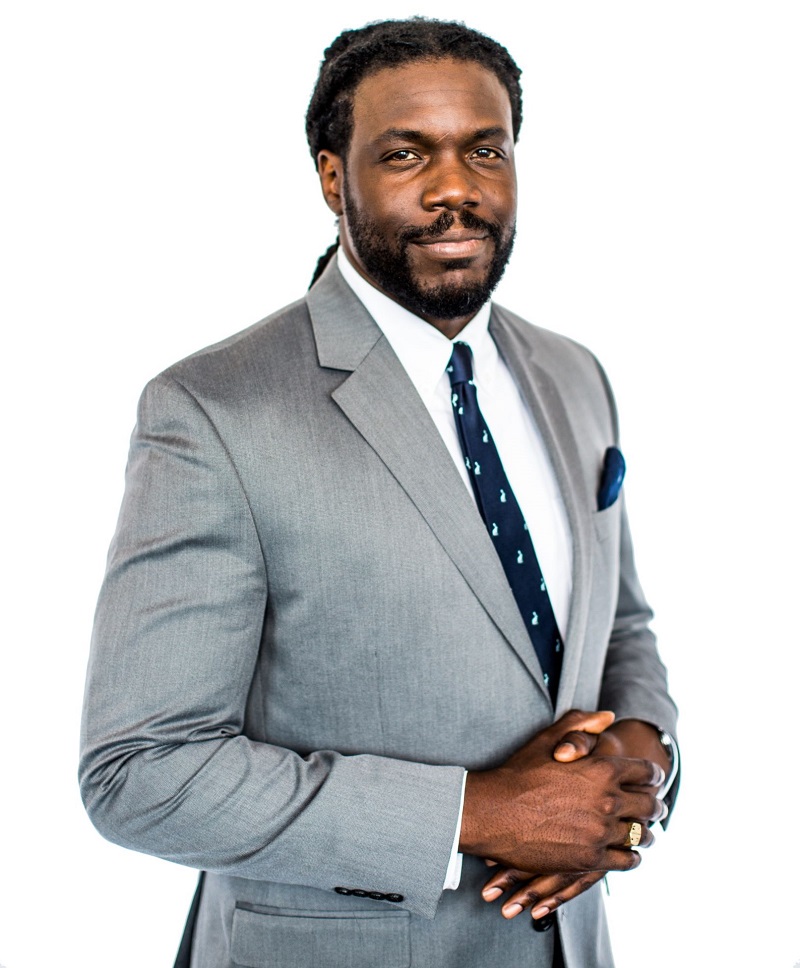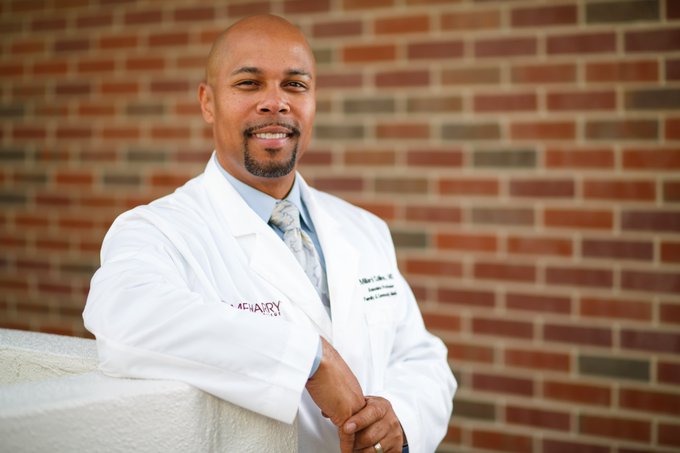‘This is what I’m able to do’: New fund seeks to help address racial inequities in healthcare
Nashville-based entrepreneur Marcus Whitney has launched a venture capital fund that will support Black-led healthcare business endeavors.
Note: This article was updated after publication to incorporate a change in the name of the new fund from Jumpstart Eclipse to Jumpstart Nova.

There wasn’t a single statistic, experience or anecdote that convinced Marcus Whitney of the need to fund more opportunities for Black innovators in healthcare.
Rather, the entirety of his experience as a Black person and entrepreneur living and working in the U.S. drove home the point.
“When you’re Black, you don’t need an anecdote,” Whitney said. “You live it every day.”
Inequality of opportunity “is just pervasive,” he added. “It goes across all areas where power and wealth are concentrated. It’s just the truth right now.”
With a new fund called Jumpstart Nova, Whitney, a prominent venture capitalist based in Nashville, hopes to address disparities that he says lead both to a lack of opportunity for Black-led healthcare businesses and to care-related inequity.
In terms of making an impact, he said, “This is what I’m able to do.”
The first of its kind
Jumpstart Nova is a new funding brand from Whitney’s Jumpstart Health Investors, which has invested in more than 100 companies over six years.
Described in promotional materials as “the first Black healthcare venture fund in America,” Jumpstart Nova seeks to invest in Black entrepreneurs and empower them to make progress toward achieving equity in healthcare.
The plan is to invest exclusively in companies that have Black founders and Black leadership and that seek to address needs in various spaces in which Whitney has healthcare investing experience. Those include:
- Health IT
- Digital health
- Tech-enabled services
- Diagnostic devices
- Medical device manufacturing
- Consumer health and wellness
Allocations will total between $30 million and $50 million over five years. The fund is in the process of raising capital and is seeking investment partners, both individuals and organizations.
Whitney believes the monetary goals of the new fund are thoroughly achievable. In 2019, he noted, healthcare venture fundraising exceeded $10 billion, according to data from Silicon Valley Bank.
In that context, he said, a fund totaling up to $50 million over a five-year span — less than 1% of the pie on a per-year basis — should not be a stretch.
Said Whitney: “Why wouldn’t we be able to get that done?”
Personal experience gives rise to a new initiative
Even as he carved out a significant reputation for himself in the venture capital space, Whitney saw up close the underrepresentation of Black entrepreneurs.
The impetus for the new fund stems in part from the “collective awareness of the need to make progress in racial equity that the world has experienced this year,” Whitney said. “But in terms of my awareness of the issues that the fund is trying to address, I’ve been aware of them for at least as long as I’ve been in the industry.”
While Blacks made up 13.4% of the population as of 2010, according to the U.S. Census Bureau, “I’m rarely one out of five in the rooms that I traffic in,” Whitney said. “It’s more like one out of 20 or 30 or 50.”
That deficit has implications for health equity across the board, Whitney said, drawing a connection between the low number of Black-led startups and widely publicized disparities in health outcomes that adversely affect Black people. An especially noteworthy recent disparity has been the difference in COVID-19 deaths, with data indicating the mortality rate is twice as high for Blacks who contract the disease as it is for whites.
By improving the proportion of Black people in healthcare entrepreneurship and innovation, Whitney hopes Jumpstart Nova will foster innovations that address systemic inequities in access and outcomes.
Such gaps “are far more significant than a $30 million to $50 million venture fund could possibly address,” he said. But “hopefully, we can be part of the solution.”
Finding ways to make a difference
A key component of Jumpstart Nova will be a clinical advisory board. In promotional materials, the stated purpose of the board is to serve as a “national network of the most talented, innovative and connected Black clinicians to assist in due diligence, advisory and fractional Chief Medical Officer services for our portfolio.”
The co-chairs are:
- Millard Collins, MD, chair and associate professor of Family and Community Medicine at Meharry Medical College, a historically black school in Nashville
- Contessa Metcalfe, MD, physician, entrepreneur and cast member of the Bravo show Married to Medicine
Collins, a friend of Whitney’s, didn’t need to be sold on participating in Jumpstart Nova.
“It can fill a tremendous void,” Collins said. “Individually, there are lots of good people in organizations, but there aren’t enough to make an impact across the board. This is going to bring a lot of people together because the initiative is not for one particular angle to be the saving grace.”

Funds that focus on specific disease processes don’t get to the root of the problem, Collins said. When he started at Meharry almost two decades ago, he noted, 4% of the nation’s physicians were Black. The increase since has been incremental — to 5% as of 2018, according to statistics from the Association of American Medical Colleges.
Add in that the share of Black leaders in healthcare research and development is 3%, as Whitney stated, and an underlying reason for the lack of targeted solutions becomes apparent.
“We’re not just looking to go in and come up with a magic bullet,” Collins said. “We’re really trying to get equity in all facets of it, from healthcare leadership to vendor selection to other resources.”
By getting involved with the fund, he noted, stakeholders can be part of improving equity in healthcare while also reaping financial gains.
Promising early signs
Whitney already has succeeded in attracting investors to the new fund, which is a testament both to his powers of persuasion and to the desire of people to aid the cause, Collins said.
“We’re finding that a lot of people want to help, but what Marcus is providing them is an opportunity to help,” Collins said.
The impact could be profound not just in healthcare settings but also for social determinants of health such as poverty, drug addiction and violence, Collins said.
“We don’t need a Band-Aid,” he said. “We need something that’s going to be sustainable for generations to come.”





